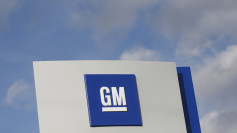Volkswagen sales director Jürgen Stackmann took to Twitter and LinkedIn to announce that those who made reservations for its ID.3 First Edition can complete their pre-book starting June 17.
The ID.3 EV has more than 30,000 pre-orders, but it was rumored that the automaker will delay the market production of the all-electric car. Luckily for customers, the first orders will start in June.
Stackmann said that Volkswagen will reach out to those who placed a reservation and deposited €1,000. After completing an order form, it will take a few weeks for delivery. An official VW dealer will process each order, but note that the ID.3 will not be sold in the U.S.
Sweet, sweet anticipation is coming to an end! Our ID.3 1st pre-bookers can order their car from June 17, 2020️
You will be contacted by your dealer shortly!
Thanks for your patience!#emobility #VWID3 #VWID @volkswagen pic.twitter.com/9lvyI9hUaR — Jürgen Stackmann (@jstackmann) May 5, 2020
Volkswagen in March promised ID.3 deliveries won't take long, and although the company faced software difficulties, it will not postpone the summer introduction.
The ID.3 is offered with three different battery packs. The most affordable variant of the EV starts at less than €30,000, but Volkswagen will first release a more expensive version with up to 550 km. The base version will later come with a 45-kWh battery pack, which according to the automaker, will allow up to 330 km as per WLTP. The base ID.3 will be sold at €23,430 in Germany after the €6,000 environmental bonus the government is giving for electric cars.
On April 23, VW resumed the production of the first edition ID.3 after shutting down all operations due to the COVID-19 pandemic. Meanwhile, the automaker is also aware of the rising cost of car components because of the ongoing health crisis, which has pressured its profits as the industry enters a deep recession.
Volkswagen resumed production at its Wolfsburg HQ last week and has since revealed that parts makers operating at a fraction of their capacities are causing a spike on expenses.
"Suppliers invested in manufacturing facilities for large volumes," Stefan Sommer, VW's board member for procurement, told the Financial Times. "Now there are depreciations, while the overhead costs remain and they can't be reduced overnight."
Oil prices and raw materials have gone cheap and could offset much of the increase, but Sommer noted that the cost of sourcing parts would "rise in the classic value chain."
Because the world is still in turmoil because of the pandemic, VW, and other automakers agree the total cost of auto production will remain questionable, but for now, it's too early to tell if the current steep prices will be permanent.





